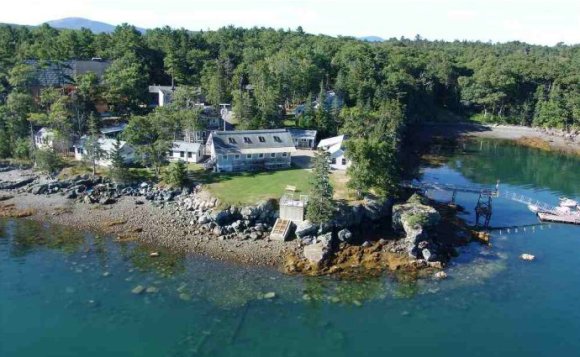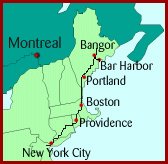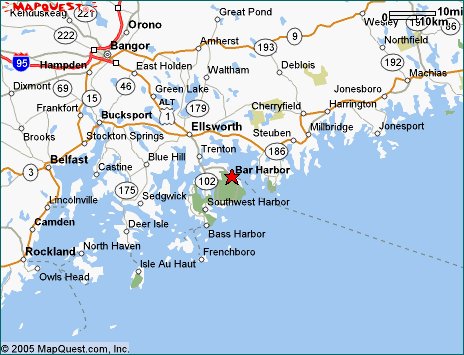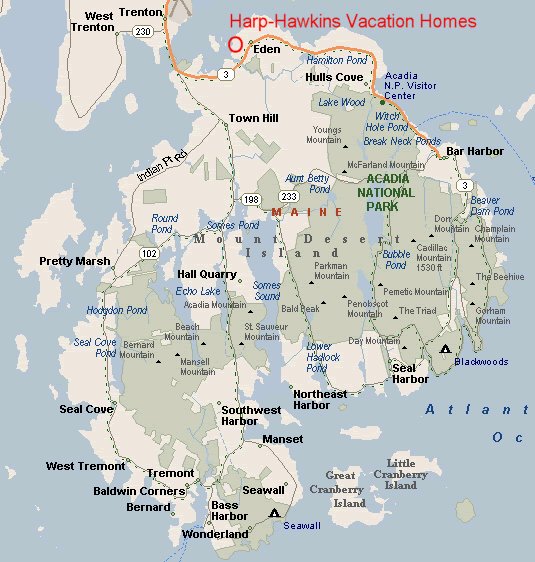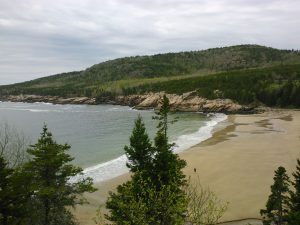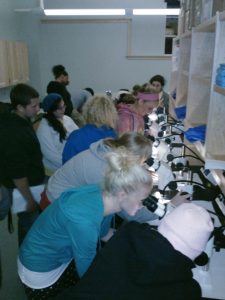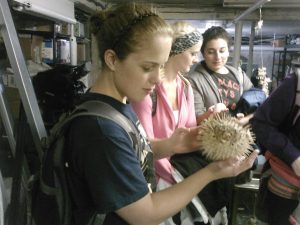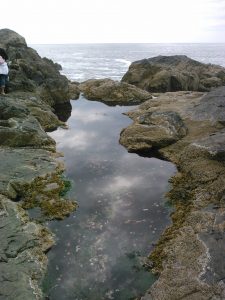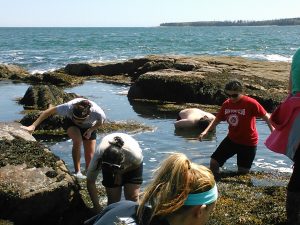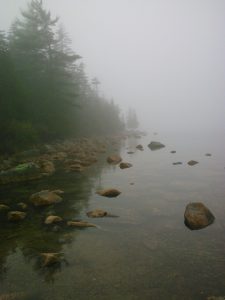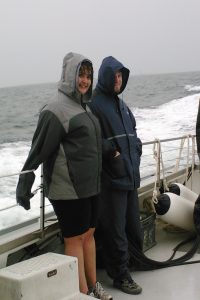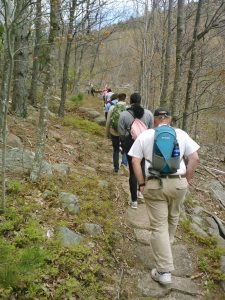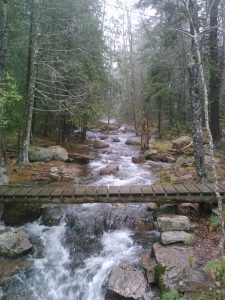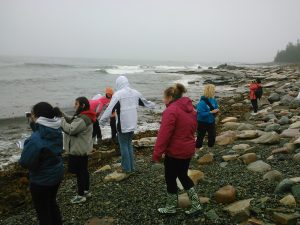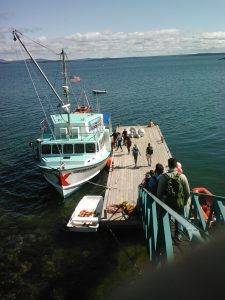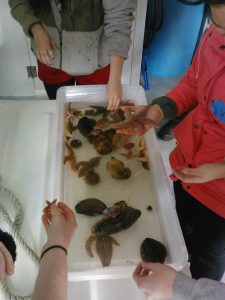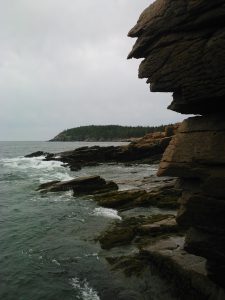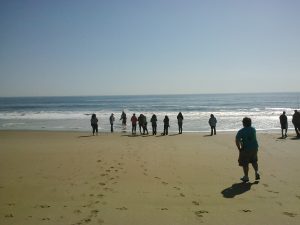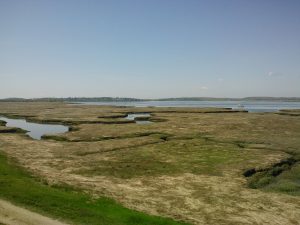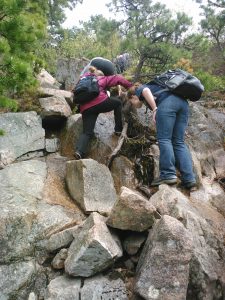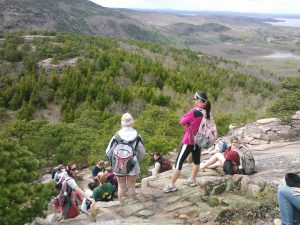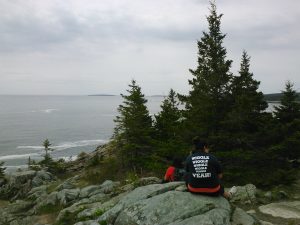Summer 2 – July 26-Aug 4, 2025
Instructors: Dr. Stephen Weeks and Dr. Lara Roketenetz
Two information sessions:
Thu Feb 20, 1-2:00pm & Wed Feb 26, 2-3:00pm (both in ASEC D404)
Microsoft Teams link for both information meetings:
Meeting ID: 259 016 435 297; Passcode: Eg3A8Vc7
Only 12 slots available! Sign up soon! $100 Deposit to sign up!
THERE ARE NO PREREQUISITES FOR THIS CLASS AND IT IS OPEN TO ALL LEVELS (FRESHMAN THROUGH SENIORS)!
Tentative Itinerary for 2025 trip
Pictures and videos from the 2018 & 2023 trips
Travel, field station fees, room & board for 10 day trip= $925 (+tuition/fees for 4-unit course)
Contact Steve Weeks (330-972-7156; scw@uakron.edu) for more information.
Location: Bar Harbor & Acadia National Park, Maine
The purpose of the course is four fold:
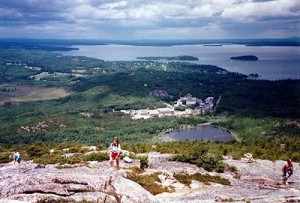
1) To expose students to marine systems nearshore terrestrial communities
2) To teach basic concepts and facts in marine biology
3) Train students how to observe natural phenomenon in a scientific manner
4) To learn field sampling techniques and conduct ecological studies in the field
5) Help students develop testable hypotheses from their observations
6) Learn how to frame these hypotheses in a written research proposal
We will be staying at the Mount Desert Island Biological Lab (MDIBL) near Bar Harbor, Maine. The lab has dorm facilities, on-site meal plans, indoor and outdoor teaching space, lab space, and partners with another nearby facility for research vessels. Thus, they have everything we will need for our educational needs!
We will be studying rocky intertidal communities, near-shore marine habitats, open water ecosystems & the terrestrial communities of the Acadia National Park.
We will have one day for whale watching and will be making several hikes in the national park over several days. Students will learn field sampling techniques, surveying the local flora and fauna, and learning about the various ecosystems through lectures & field excursions.
What will I need to bring?
We will meet several times before the actual trip to discuss this, but the intent is to not place a burden on you to buy much new gear.
You will need:
– Field cloths/shoes (cloths that you don’t mind getting dirty)
– Sun and Bug repellent (Bugs are a usually not bad but the sunburns are common for the foolhardy).
– A water bottle
– A bound notebook and pencils
How will we get there?
We will be driving in university-provided vans.
What will we get graded on?
We will grade you partly on class participation. The class is fun, but it is on the go in the field. You will be graded partly on how much you engage in these field activities. This will include being assigned to a team that will be “in charge” of one of the several habitats/communities that we study on the trip. Each team will present information about their habitat/community while we are visiting those areas during the field trips. (25% of grade)
You will conduct a small field project in Maine and present your results to the class near the end of our trip. (10% of grade)
We will also grade you based on a notebook/journal that you will keep. You should be continuously updating the notebook with your observations (with specifics). In your journal, you will record new (to you) species (at least 3/day) and look up their life-histories/ecology. In the field, you should record where the species are distributed and follow how they may be differentially distributed across environments. In addition, your journaling should note reflections on experiments you could possibly do and how you would perform them if you were to return to MDIBL. We will grade these notebooks every evening of our trip, with an eye toward how you are developing your observational ability and if you are developing testable hypothesis. (25% of grade)
Finally, after you return from the trip you will need to submit a ~10 page research proposal for work to be done at MDIBL. You will use the notes you developed in your notebook/journal to design a hypothetical research project that you would conduct if you were to return to the marine lab. (40% of grade)
